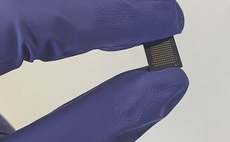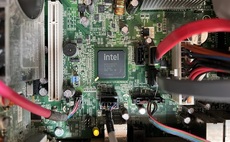Is deal to make cutting-edge FPGA chips for Altera the start of a shift into the foundry business - and the first move to make ARM-based microprocessors for Apple?
Faced with declining demand for its high-margin microprocessor products in PCs and laptops, while even server sales have stalled, semiconductor giant Intel is looking to cut foundry deals to keep i...
To continue reading this article...
Join Computing
- Unlimited access to real-time news, analysis and opinion from the technology industry
- Receive important and breaking news in our daily newsletter
- Be the first to hear about our events and awards programmes
- Join live member only interviews with IT leaders at the ‘IT Lounge’; your chance to ask your burning tech questions and have them answered
- Access to the Computing Delta hub providing market intelligence and research
- Receive our members-only newsletter with exclusive opinion pieces from senior IT Leaders



















